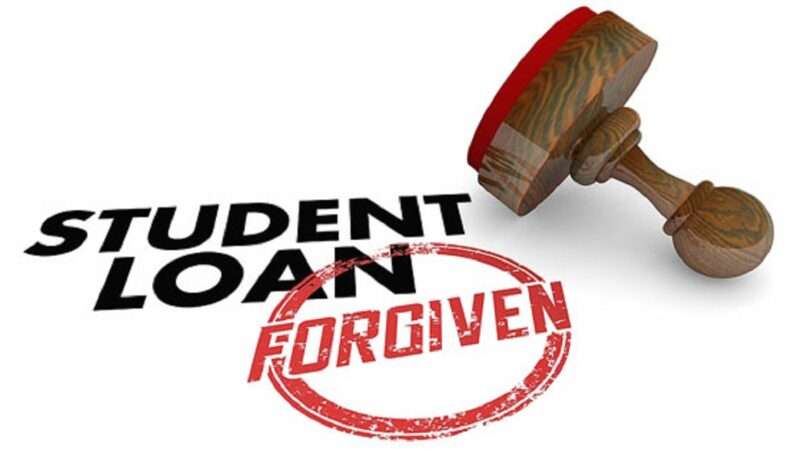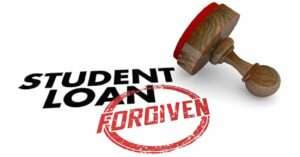

Today the Supreme Court decided to hear Department of Education v. Brown, a second case challenging the legality of President Biden's $400 billion loan forgiveness plan. In a brief order, the Court indicated that the case will be argued in February, probably at the same time as the the other loan forgiveness case accepted by the justices: Biden v. Nebraska, a lawsuit brought by six Republican-controlled state governments. In the meantime, as in the other case, the Supreme Court refused to stay the lower court ruling against the plan, thereby ensuring it will remain blocked, at least until the oral argument, and probably until the Court issues a final decision on the merits. For reasons explained in my post about Biden v. Nebraska, the Justice's refusal to stay the lower-court decisions probably doesn't bode well for the Biden Administration.
The two cases are also similar in that both involve a dispute over standing, as well as one over the merits (the Supreme Court will consider both issues). But Brown is notable for being the only a case—so far—in which a court has reached a decision on the merits:
I summarized the Brown case here:
[Brown was] brought by the conservative Job Creators Network (JCN) on behalf—somewhat ironically—of two plaintiffs who contend the program isn't generous enough. In what was likely an effort to forestall lawsuits by ensuring there are no potential plaintiffs with standing, the administration excluded from its plan borrowers whose federal student loans are held by private commercial lenders. The latter were seen as more likely to sue than other student loan servicers.
One of plaintiffs in the JCN case is among the borrowers excluded from the Biden plan as a result of this move. The other qualifies for only $10,000 in relief, as opposed to the $20,000 he would get if he were a Pell Grant recipient. They argue they have standing because administration adopted the plan without going through the "notice and comment" procedure normally required by the Administrative Procedure Act, which would have given them an opportunity to criticize their exclusion, and urge that the program be broader in scope. The plaintiffs cite precedent indicating that deprivation of a procedural right can sometimes qualify as an "injury" for standing purposes….
In a ruling issued on November 10, federal District Court Judge Mark T. Pittman accepted this procedural rights standing theory. He therefore addressed the merits of the case—becoming the first judge to do so. On the merits, he concluded that the 2003 HEROES Act, the legislation the Biden Administration relies on, does not authorize the program…
Judge Pittman concludes that, under current Supreme Court precedent, the loan forgiveness program qualifies as a policy addressing a "major question" and therefore requires clear congressional authorization, which the HEROES Act doesn't grant….
On the basis of this reasoning, Judge Pittman issued a ruling vacating the loan forgiveness policy, thereby effectively barring its implementation nationwide….
Judge Pittman is on more questionable ground in his ruling on standing. Even if deprivation of a procedural right is potentially a sufficient injury, it's not clear that a ruling holding that the program is unconstitutional provides redress for that injury…. If I understand him correctly, he gets around this problem by arguing that, if the court strikes down the HEROES Act rationale for the policy, the Biden administration might go back to the drawing board and try to find some other way to implement loan forgiveness, perhaps one that is subject to the APA, and therefore will give the two plaintiffs a chance to participate in the notice and comment process.
This strikes me as highly speculative. But I admit I am not expert on the highly specialized doctrine of procedural rights standing. So perhaps I'm missing something….
As noted in my previous post discussing Brown, I think the plaintiffs' standing argument in this case is weaker than the one in Biden v. Nebraska. But perhaps a majority of Supreme Court justices disagrees. Regardless, I think it likely they will conclude that at least some of the plaintiffs in at least one of these cases do have standing. If so, I think it is also likely (though not certain) the Court will rule against the Biden Administration on the merits.
I have previously discussed Biden v. Nebraska and the associated lower court decisions here, here, here, here, and here. For my more general critique of the legal rationale for the loan forgiveness program—which has much in common with Donald Trump's attempt to divert funds to build his border wall—see here. For an overview of the issue of standing, which has, at least to this point, been the main obstacle to getting courts to strike down the plan, see here.
Some defenders of the program have argued that it can be better justified under the 1965 Higher Education Act, instead of the HEROES Act. I criticized this alternative rationale (which—so far, at least—has not been adopted by the Biden Administration) here.
The post Supreme Court Decides to Hear Second Case Challenging Legality of Biden's Loan Forgiveness Plan appeared first on Reason.com.







